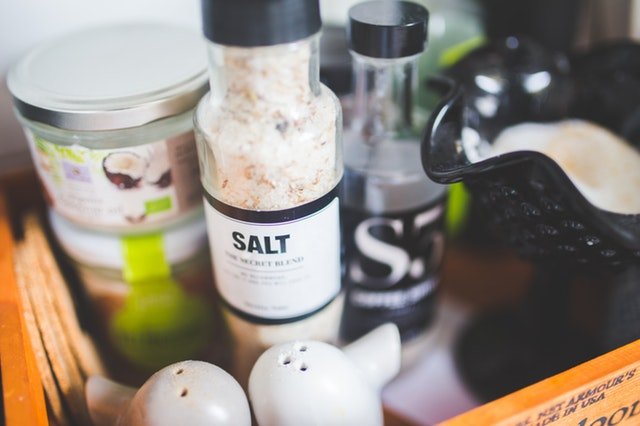
In a new study, researchers found that a high-salt diet is not only bad for blood pressure, but also for the immune system.
They found mice fed a high-salt diet were found to suffer from much more severe bacterial infections.
Human volunteers who consumed an additional six grams of salt per day also showed strong immune deficiencies. This amount corresponds to the salt content of two fast-food meals.
The research was conducted by a team at the University Hospital Bonn.
Five grams a day, no more: This is the maximum amount of salt that adults should consume, according to the recommendations of the World Health Organization (WHO).
It corresponds approximately to one level teaspoon. In reality, however, many Germans exceed this limit considerably:
Figures from the Robert Koch Institute suggest that on average men consume ten, women more than eight grams a day.
This means that we reach for the salt shaker much more than is good for us. After all, sodium chloride, which is its chemical name, raises blood pressure and thereby increases the risk of heart attack or stroke.
In the study, the team found for the first time that excessive salt intake also strongly weakens an important arm of the immune system.
This finding is unexpected, as some studies point in the opposite direction.
The team says the body keeps the salt concentration in the blood and in the various organs largely constant. Otherwise important biological processes would be impaired.
The only major exception is the skin: It functions as a salt reservoir of the body. This is why the additional intake of sodium chloride works so well for some skin diseases.
However, other parts of the body are not exposed to the additional salt consumed with food.
Instead, it is filtered out by the kidneys and excreted in the urine. And this is where the second mechanism comes into play:
The kidneys have a sodium chloride sensor that activates the salt excretion function.
As an undesirable side effect, however, this sensor also causes so-called glucocorticoids to accumulate in the body.
And these, in turn, inhibit the function of granulocytes, the most common type of immune cell in the blood.
Granulocytes, like macrophages, are scavenger cells. However, they do not attack parasites, but mainly bacteria. If they do not do this to a sufficient degree, infections proceed much more severely.
Previously, the team had put some mice on a high-salt diet. In the spleen and liver of these animals, they counted 100 to 1,000 times the number of disease-causing pathogens.
Listeria is bacteria that are found for instance in contaminated food and can cause fever, vomiting, and sepsis.
Urinary tract infections also healed much more slowly in laboratory mice fed a high-salt diet.
Sodium chloride also appears to have a negative effect on the human immune system.
In human volunteers, excessive salt intake also resulted in increased glucocorticoid levels. That this inhibits the immune system is not surprising: The best-known glucocorticoid cortisone is traditionally used to suppress inflammation.
The lead author of the study is Prof. Dr. Christian Kurts from the Institute of Experimental Immunology at the University of Bonn.
The study is published in the journal Science Translational Medicine.
Copyright © 2020 Knowridge Science Report. All rights reserved.



